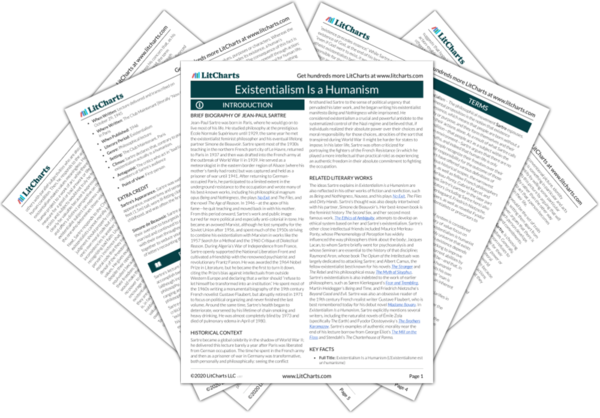Previous
Abandonment
|
Previous
Abandonment
|
Despair Term Analysis |
Next
Human Condition
|
The truth is that of all doctrines, this is the least scandalous and the most austere: it is strictly intended for specialists and philosophers.

Unlock explanations and citation info for this and every other Existentialism Is a Humanism quote.
Plus so much more...
Get LitCharts A+